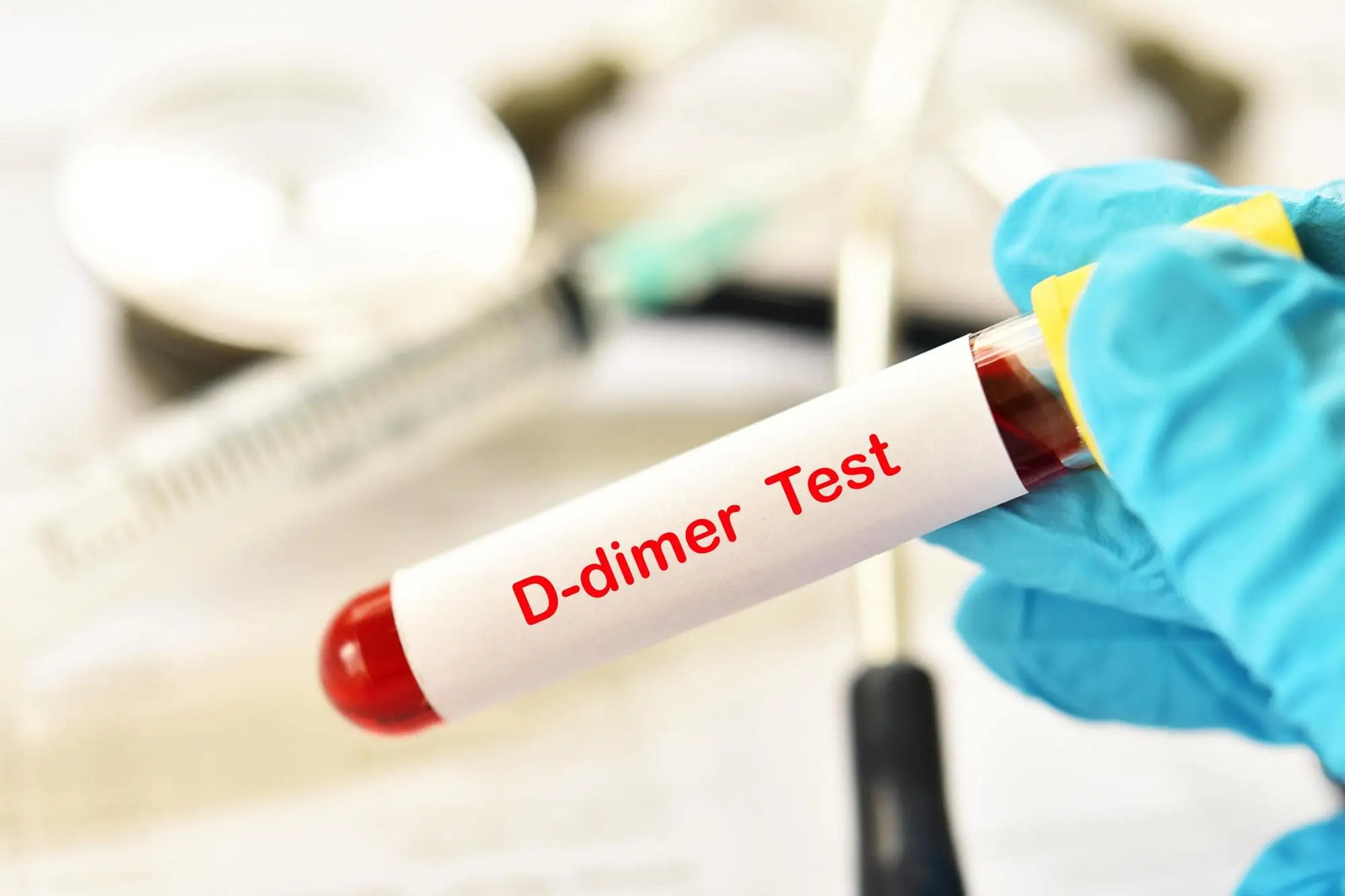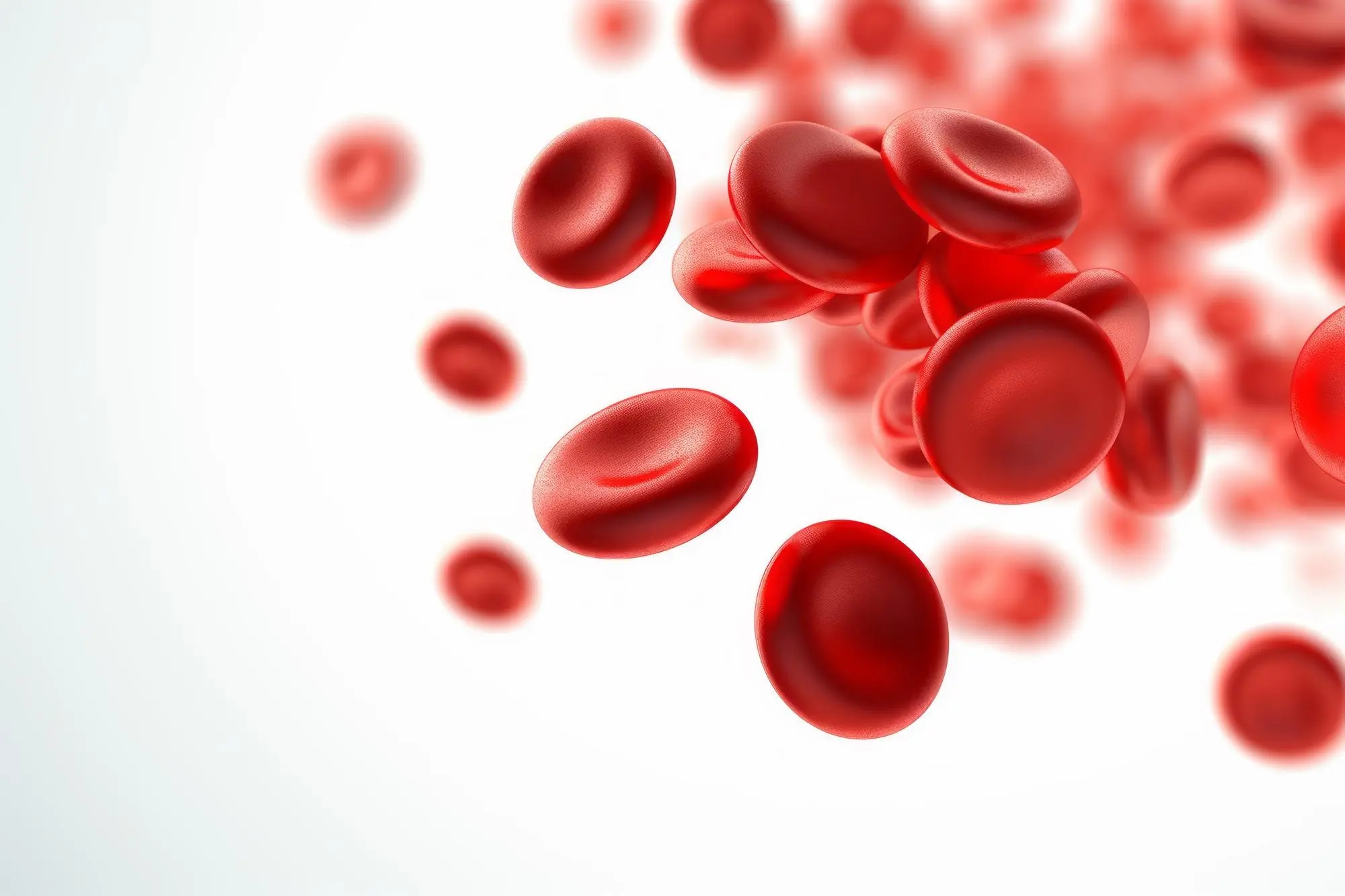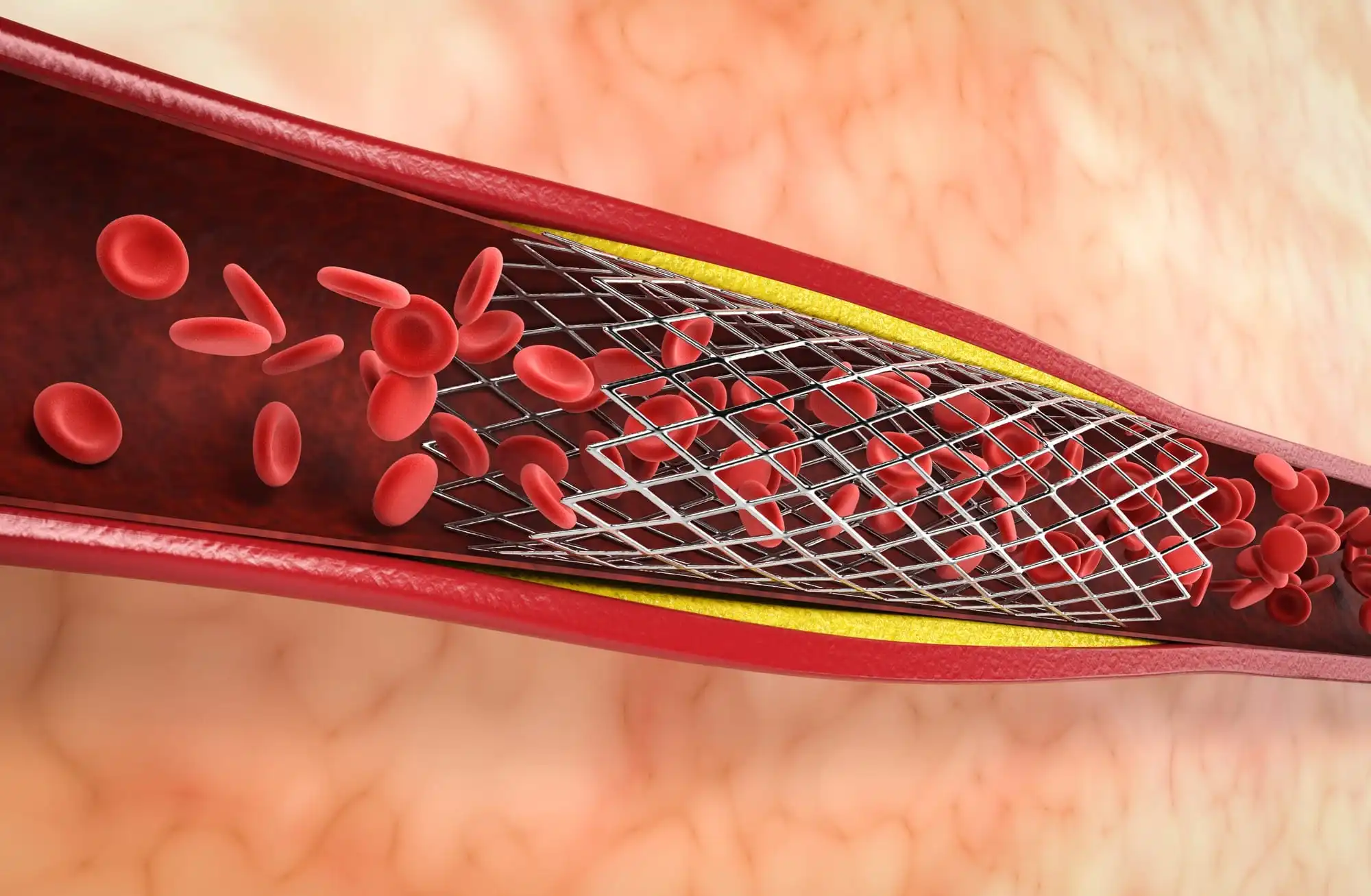What is a D-dimer Test?
D-dimer, a protein crucial for the body’s healing process, plays a role in clotting blood to stop bleeding or close damaged vessels after an injury. Following this, other proteins break down the clot, leaving behind D-dimer fragments in the blood. Typically, these fragments dissolve naturally over time. However, if a clot persists or forms again, D-dimer levels in the blood can rise. Occasionally, blood clots may form even without a clear injury, signaling a potential blood clotting disorder that poses serious risks.
Doctors use a D-Dimer test to find out if there are blood clots in your body, which can indicate a problem with clotting. You might need this test if you have symptoms like swelling, pain, or redness in your legs, trouble breathing, coughing (especially if you cough up blood), a fast heartbeat, chest pain, or sweating. Sometimes, the test is also used to see how well the treatment is working for these conditions. Additionally, the D-dimer test helps assess the risk and progression of conditions like pneumonia and COVID-19.
What is a D-dimer Test Used For?
Doctors usually use D-dimer tests to figure out if someone has a problem with blood clotting. This can include conditions like:
- Deep vein thrombosis: This is when a blood clot forms deep in your body, often in your leg. It can block the blood flow in the vein.
- Pulmonary embolism (PE): This is a blood clot in your lung. It happens when a clot from another part of your body travels to your lung through your blood.
- Disseminated intravascular coagulation (DIC): DIC causes too many blood clots in your body, leading to organ damage. Besides diagnosing DIC, doctors use D-dimer tests to check how well DIC treatment is working.
- Stroke: A stroke occurs when a blood vessel in your brain is blocked or bursts, causing a “brain attack.”
How is a D-Dimer Blood Test Done?
What is the Cost of D-dimer Test in India?
| City | Avg. Price(Rs.) | Starting Price(Rs.) | Price Upto(Rs.) |
|---|---|---|---|
| Agra | 920 | 500 | 1500 |
| Ahmedabad | 600 | 300 | 960 |
| Aurangabad | 1100 | 800 | 1500 |
| Bangalore | 1400 | 200 | 3800 |
| Belgaum | 800 | 700 | 1600 |
| Bharuch | 750 | 500 | 900 |
| Chandigarh | 1300 | 800 | 2000 |
| Chennai | 1000 | 500 | 1800 |
| Coimbatore | 800 | 500 | 1000 |
| Ghaziabad | 900 | 600 | 1300 |
| Gurgaon | 1394 | 1100 | 1900 |
| Guwahati | 1671 | 1200 | 2000 |
| Gwalior | 1167 | 1000 | 1450 |
| Howrah | 1165 | 900 | 1400 |
| Hyderabad | 1300 | 450 | 2500 |
| Indore | 1000 | 150 | 1500 |
| Jaipur | 1588 | 500 | 6000 |
| Jodhpur | 940 | 600 | 1500 |
| Kanpur | 1159 | 500 | 1500 |
| Kochi | 1084 | 700 | 1500 |
| Kolkata | 1231 | 600 | 1500 |
| Kota | 1222 | 600 | 2000 |
| Kurnool | 725 | 550 | 900 |
| Lucknow | 1438 | 700 | 2500 |
| Madurai | 1019 | 450 | 2500 |
| Mohali | 980 | 650 | 1500 |
| Mumbai | 1170 | 630 | 1600 |
| Nagpur | 978 | 600 | 1200 |
| Nashik | 1070 | 600 | 2200 |
| Navi Mumbai | 1350 | 1100 | 2500 |
| Delhi | 1150 | 100 | 2025 |
| Noida | 1318 | 950 | 2500 |
| Patna | 1208 | 700 | 1950 |
| Pondicherry | 1169 | 450 | 1500 |
| Pune | 1113 | 400 | 2800 |
| Raipur | 1085 | 500 | 2000 |
| Ranchi | 1237 | 950 | 1500 |
| Salem | 751 | 275 | 1450 |
| Secunderabad | 1151 | 650 | 1500 |
| Siliguri | 1239 | 900 | 1740 |
| Solapur | 775 | 450 | 1250 |
| Srikakulam | 1190 | 1000 | 1400 |
| Srinagar | 790 | 650 | 900 |
| Thane | 1191 | 1000 | 1450 |
| Thiruvananthapuram | 950 | 800 | 1200 |
| Tirupati | 1362 | 1100 | 1500 |
| Vadodara | 615 | 400 | 1000 |
| Valsad | 1000 | 1000 | 1000 |
| Varanasi | 1089 | 500 | 1500 |
| Vijayawada | 911 | 550 | 1400 |
| Visakhapatnam | 1074 | 400 | 1850 |
Factors Affecting the Cost of D-Dimer Test
The cost of a D-Dimer test can be influenced by a few things:
- Lab Prices: Different labs have different costs based on their equipment and how they operate. Bigger, more advanced labs might charge more than smaller ones.
- Where You Are: The cost can change depending on whether you’re in a big city or a smaller town. Usually, big cities with higher living costs have more expensive medical services.
- Type of Place: Hospitals, clinics, or standalone labs might charge differently. For example, a hospital might cost more than a private lab because running a hospital comes with extra expenses.
D-Dimer Reference Range and Interpreting Results
If you take or have taken the D-dimer test, you can compare the results with the normal range, which is < 250 ng/mL or < 0.5 mcg/mL. There are two outcomes:
- Negative Result: If your D-dimer levels are below a certain value, it means you probably don’t have a serious condition or a problem with abnormal blood clots.
- Positive Result: If your D-dimer levels are high, it could suggest there might be a significant blood clot in your body. This result indicates the presence of abnormally high levels of fibrin degradation products.
If your D-dimer test results aren’t in the normal range, your doctor might order more tests to check for a clotting disorder. These additional tests include:
- Doppler Ultrasound: This test uses sound waves to create images of your veins.
- CT Angiography: You’ll get injected with a special dye to help your blood vessels show up on a particular type of x-ray machine.
- Ventilation-Perfusion (V/Q) Scan: These two tests, done separately or together, use small amounts of radioactive substances to see how well air and blood move through your lungs.
Conclusion
Alright, we’ve covered the basics of D-dimer tests – why they’re important, what they’re used for, and even the costs. Remember, it’s not just about finding problems; it’s about taking charge of your health. If you want to keep track of your results and stay on top of your health game, why not download a Personal Health Record (PHR) app? We recommend you to try the Health-e app – your all-in-one health buddy. Stay healthy, stay informed!
Track your D-Dimer results effortlessly with Health-e. Download now for a smarter, healthier you!
Frequently Asked Questions (FAQs):
1. Is Fasting Necessary for D-Dimer Test?
2. When do I Need a D-Dimer test?
3. What Symptoms Might be Linked to High D-dimer Levels?
4. What Causes an Increase in D-dimer Levels?
Any clot in the body can make D-dimer levels rise. After an injury, the body usually breaks down the clot with other proteins. If the clot doesn’t dissolve after an injury heals, it can lead to higher D-dimer levels.





